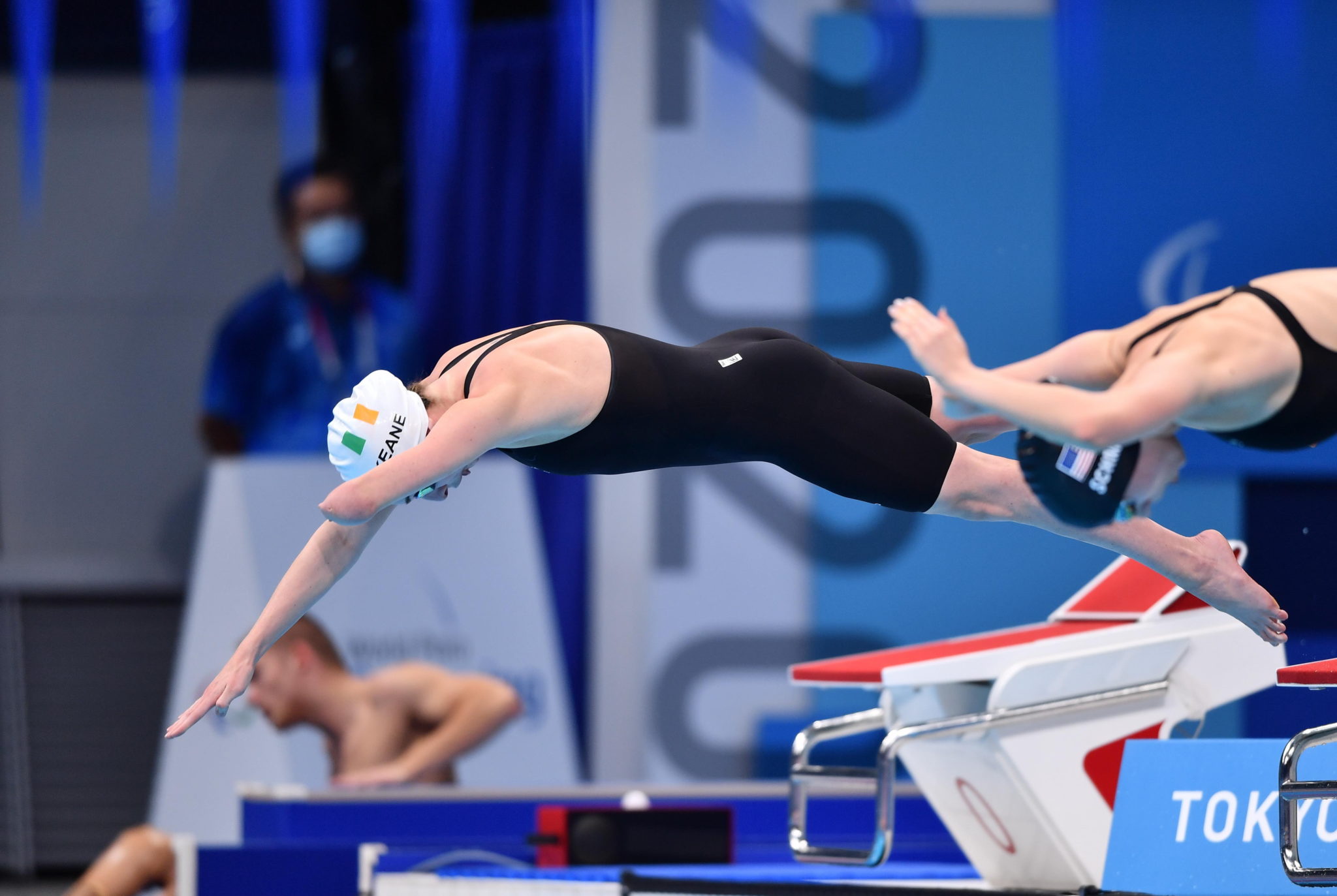Menstruation is a barrier for women in sport. Irish athletes Niamh Mallon and Ellen Keane are attempting to normalise the conversation around menstruation to remove that barrier.
OTB Sports are partnering with Science Week to ask what challenges are most important to us and how science might help. As part of this initiative, Down camogie star Niamh Mallon and Paralympic gold medalist Ellen Keane spoke to us about menstruation.
Menstruation can affect an athlete's ability to perform in different ways. Hormone levels fluctuate, the ability to break down and build muscle fluctuates, and the different nutritional needs at different stages must be addressed.
'It is all about normalising the conversation' | 🗣
Ellen Keane & Niamh Mallon join us for @ScienceWeek to ask what challenges are most important to us & how science can help
See https://t.co/jL4o90Xowc to share your ideas & find out about events throughout #ScienceWeek 2021 pic.twitter.com/2xDiWgRa7n— Off The Ball (@offtheball) November 11, 2021
Mallon works for Galway-based Orreco as a sports scientist. Orreco developed FitrWoman, an app that helps women track their menstrual cycle and adjust their training accordingly.
"Through the FitrWoman app, we break the menstrual cycle into four key phases," Mallon said.
"Phase one being menstruation, all the way through to phase four, which is that pre-menstrual window. So, in phase three, this is when progesterone rises to it's peak.
"Based off that, muscle breakdown is increased, and therefore at a practical level and from a nutrition standpoint, we would suggest increasing your protein intake around training at this time to try and offset that muscle breakdown and aid with recovery.
"That is just an example of one of the suggestions that we would make across the cycle, but each phase has their own sort of recommendations nutritionally, recovery-wise and training-wise to an extent.
"It is all about optimising performance and getting the athlete, whether recreational or elite, onto the pitch or onto the court in the best possible state."
Keane reiterates what Mallon describes. As an elite athlete, she has extensive experience working with men and women. She can see that men and women have different needs because they have different bodies. Those needs change during menstruation.
"At the end of the day, we have different bodies to men," Keane said.
"Sometimes we are going to need a little bit more slack. It doesn't mean that we aren't trying as hard as we possibly can. It just means that we are experiencing two things at the same time, and our bodies are under that little bit more stress. For me, when I am training or racing, in the past I used to go on the pill so that I could map out when I am going to get my period and it is not going to interrupt my racing.
"That is something that girls do actually look into and girls do try and get as much control over their period as possible. Some people might have worse symptoms than others and it is recognising that as a coach.
"Maybe not every girl is the same, and some girls might have worse-off symptoms."
Mallon believes that there is still a stigma around women discussing menstruation in the context of sport. By normalising it, opportunities to develop a more accurate education for women in sport will be easier to come by. Menstruation for women should be as standard as strength and conditioning or nutrition in any sporting environment.
"It is all about normalising the conversation," Mallon said.
"It is just as applicable to Chelsea Women as it is to a recreational GAA player in Ireland. Or any exercising woman across the globe.
"For elite teams, such as the Chelsea Women, to be bringing this into their setup, and normalising it just as they would their strength and conditioning, their nutrition, their physio, etc, it is massive. It really opens up the conversation.
"Normalising it is the first step in getting this information out there to all exercising women across the globe."

Where can sport improve around menstruation and sport?
Keane believes that facilities and education are key for advancing.
"One of the things that may also need to change is in facilities," Keane said.
"Having supplies there for the girls. Young girls might be getting their first period at a training session and not know what to do about it. They aren't going to be able to speak to their coach about it. So I think facilities need to start stepping up and providing these tampons or pads or whatever they may want to use and stop making it such a taboo.
"Swimming is probably one of the worst sports. I am only saying that because I am a swimmer, but from experience, it can be quite embarrassing.
"You are wearing such limited clothing, so you are probably more aware than ever if you are on your period; if it is heavy, if you are wearing a tampon, you are just constantly checking that the string isn't on show.
"As a community in the changing room, girls will always talk about it to each other. And girls will always have each others' backs.
"It is more educating your other teammates and guys to just be able to be comfortable enough. I think the more we talk about it, the less embarrassed other people might be getting around it.
"Accidents do happen. Sometimes you do leak and it is just important to acknowledge that that is very normal."
OTB Sports are partnering with Science Week to ask what challenges are most important to us and how science might help. Visit scienceweek.ie to share your ideas and find out about the events taking place throughout Science Week 2021.








